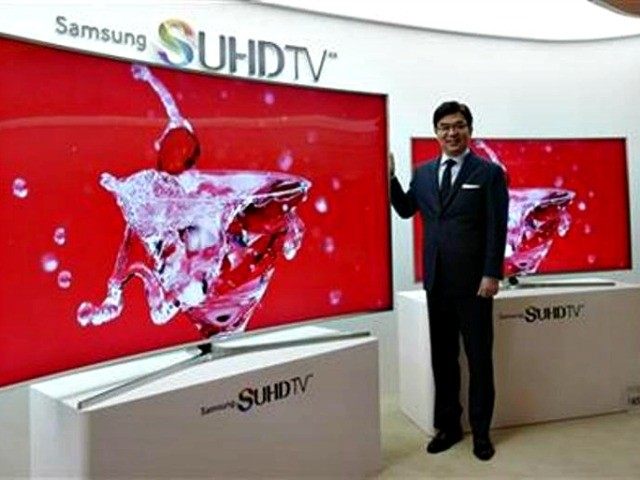The sinister world of George Orwell’s 1984, which was based on the Russian novel We by Yevgeny Zamyatin, is fast becoming a living reality, as electronic devices on the market glean personal information from unsuspecting users. In particular, voice-activated services such as “smart TVs” permit the electronic devices with embedded ears to hear everything said by the user.
Samsung, which produces a number of Internet connected TVs, has issued a warning to prospective buyers that if the user uses voice recognition to control the device, information may be transmitted to a third party that converts the speech to text. Samsung’s supplementary privacy policy dealing with those TV’s states:
You can control your SmartTV, and use many of its features, with voice commands. If you enable Voice Recognition, you can interact with your Smart TV using your voice. To provide you the Voice Recognition feature, some voice commands may be transmitted (along with information about your device, including device identifiers) to a third-party service that converts speech to text or to the extent necessary to provide the Voice Recognition features to you. In addition, Samsung may collect and your device may capture voice commands and associated texts so that we can provide you with Voice Recognition features and evaluate and improve the features. Please be aware that if your spoken words include personal or other sensitive information, that information will be among the data captured and transmitted to a third party through your use of Voice Recognition.
Companies producing smart TVs often notify the user that the viewing data gleaned from their usage will be shared with advertisers.
Although Samsung provides an option to disable voice recognition, allowing the user to utilize predefined “voice commands” and insisting that the user’s words will not be transmitted, the usage data will still be transmitted for data mining purposes. The policy states: “If you do not enable Voice Recognition, you will not be able to use interactive voice recognition features, although you may be able to control your TV using certain predefined voice commands. While Samsung will not collect your spoken word, Samsung may still collect associated texts and other usage data so that we can evaluate the performance of the feature and improve it.”
The FTC has warned of a coming “Internet of Things,” predicting 25 billion connected objects predicted to be online in 2015, and 25 million smart home devices in 2015.
FTC Chairwoman Edith Ramirez pointed out three incipient dangers of such a world: ubiquitous data collection, unexpected uses of consumer data that could be dangerous, and heightened security risks.

COMMENTS
Please let us know if you're having issues with commenting.